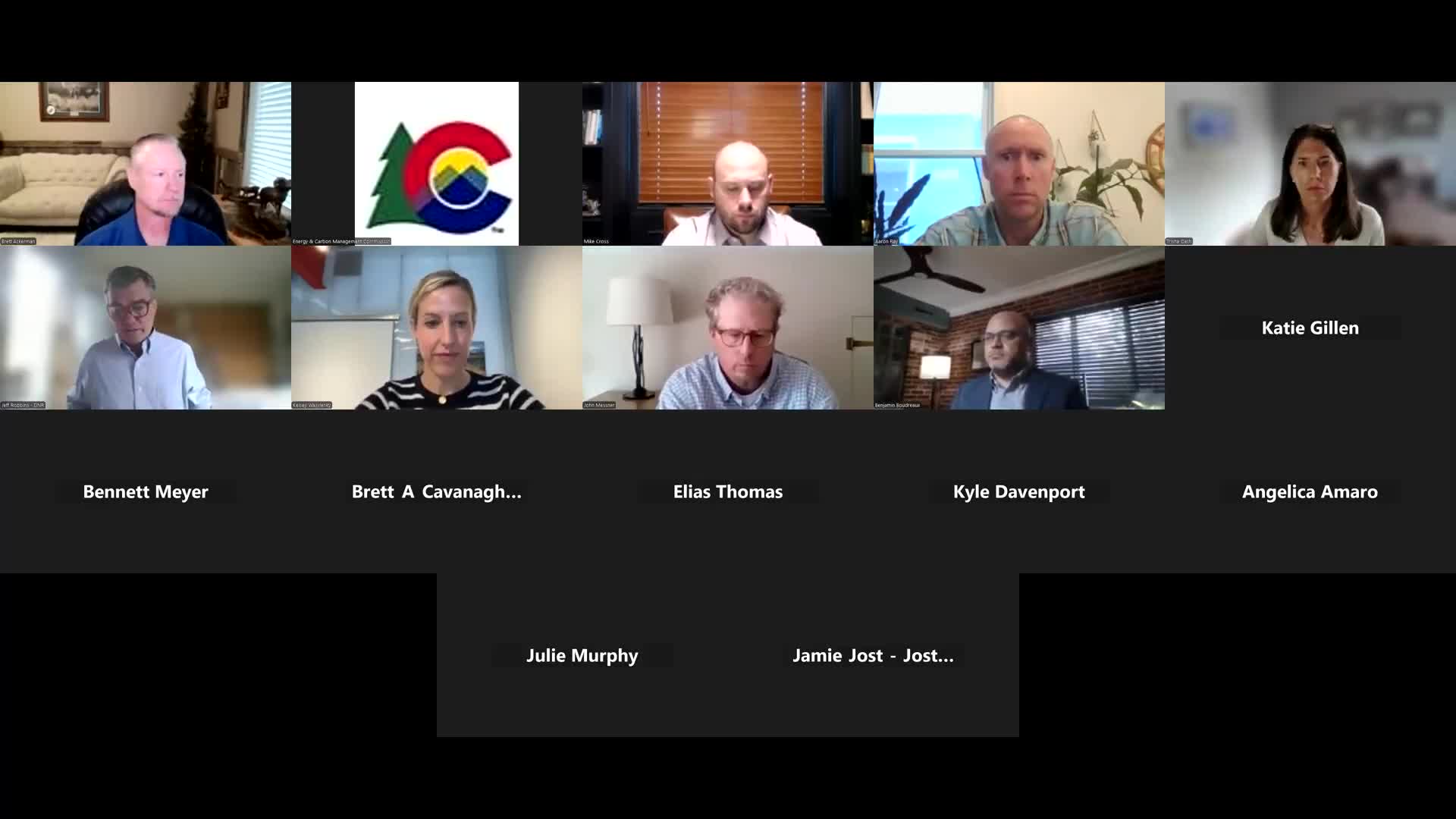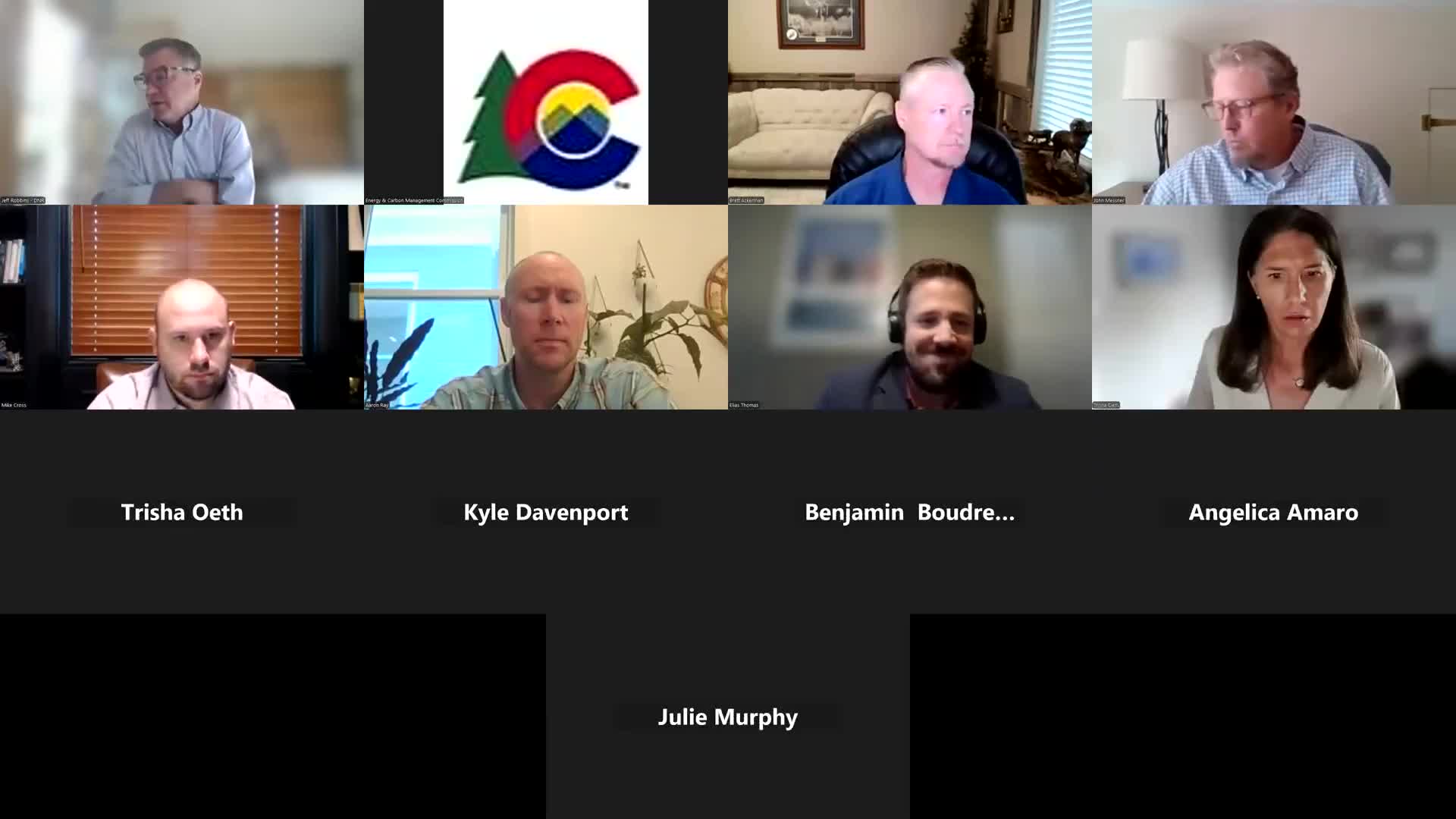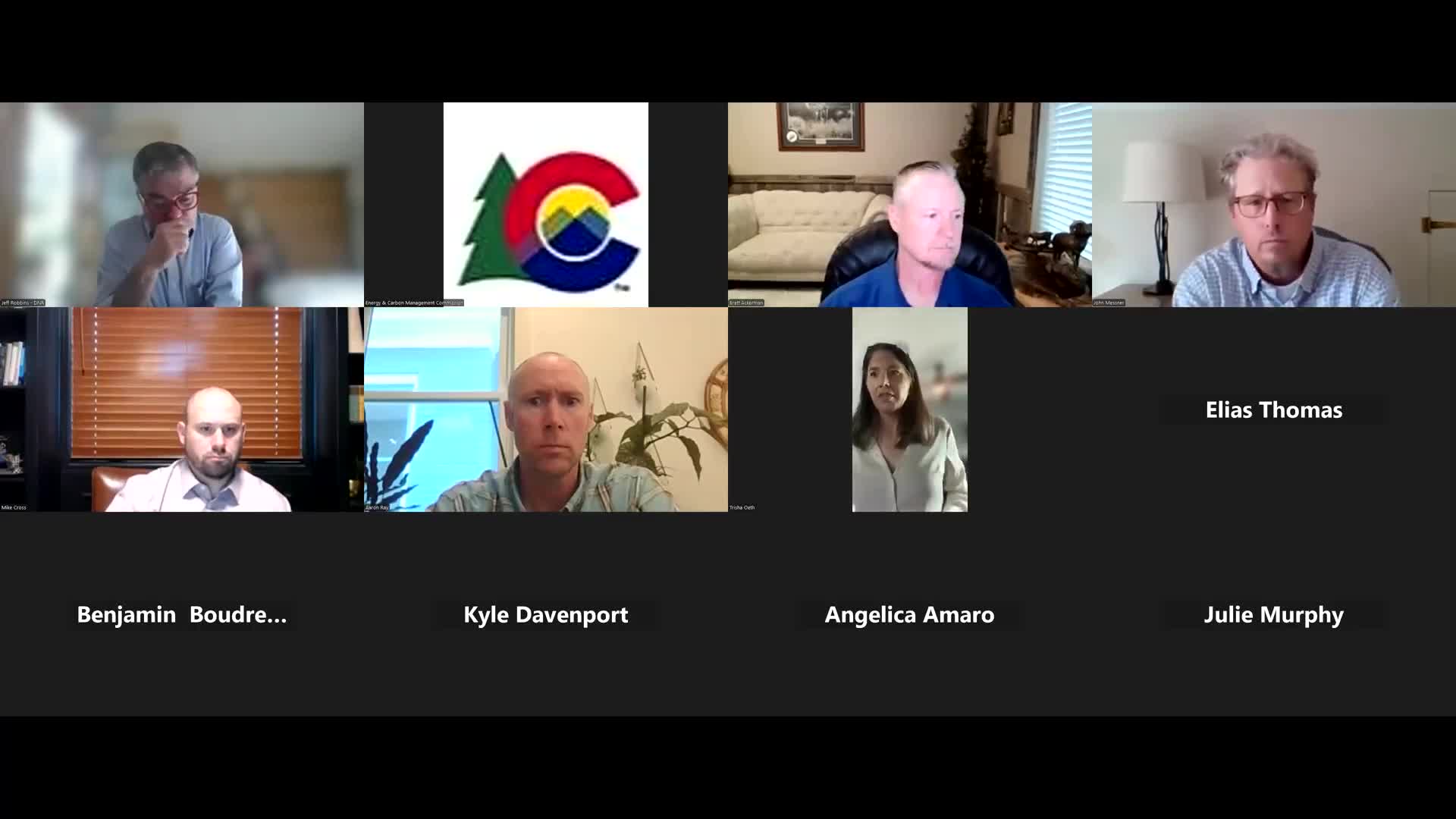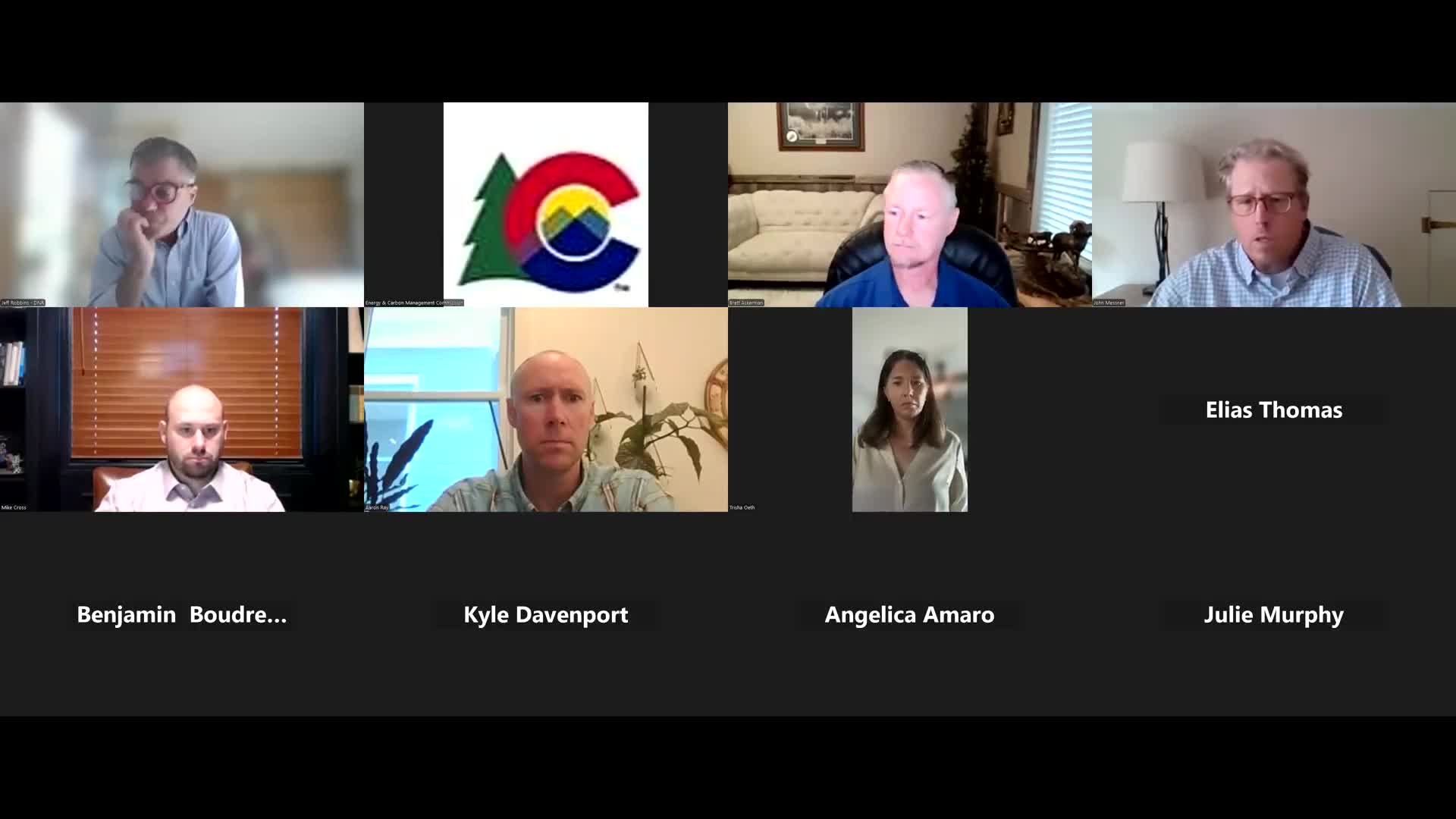Article not found
This article is no longer available. But don't worry—we've gathered other articles that discuss the same topic.

ECMC approves Bison Scorpion Bay 23 OGDP after CPW consultation and timing commitments

ECMC approves Bison Cartwright 24 oil and gas development plan with conditions

Commissioner proposes expert panel to review recent health studies on oil and gas exposures

